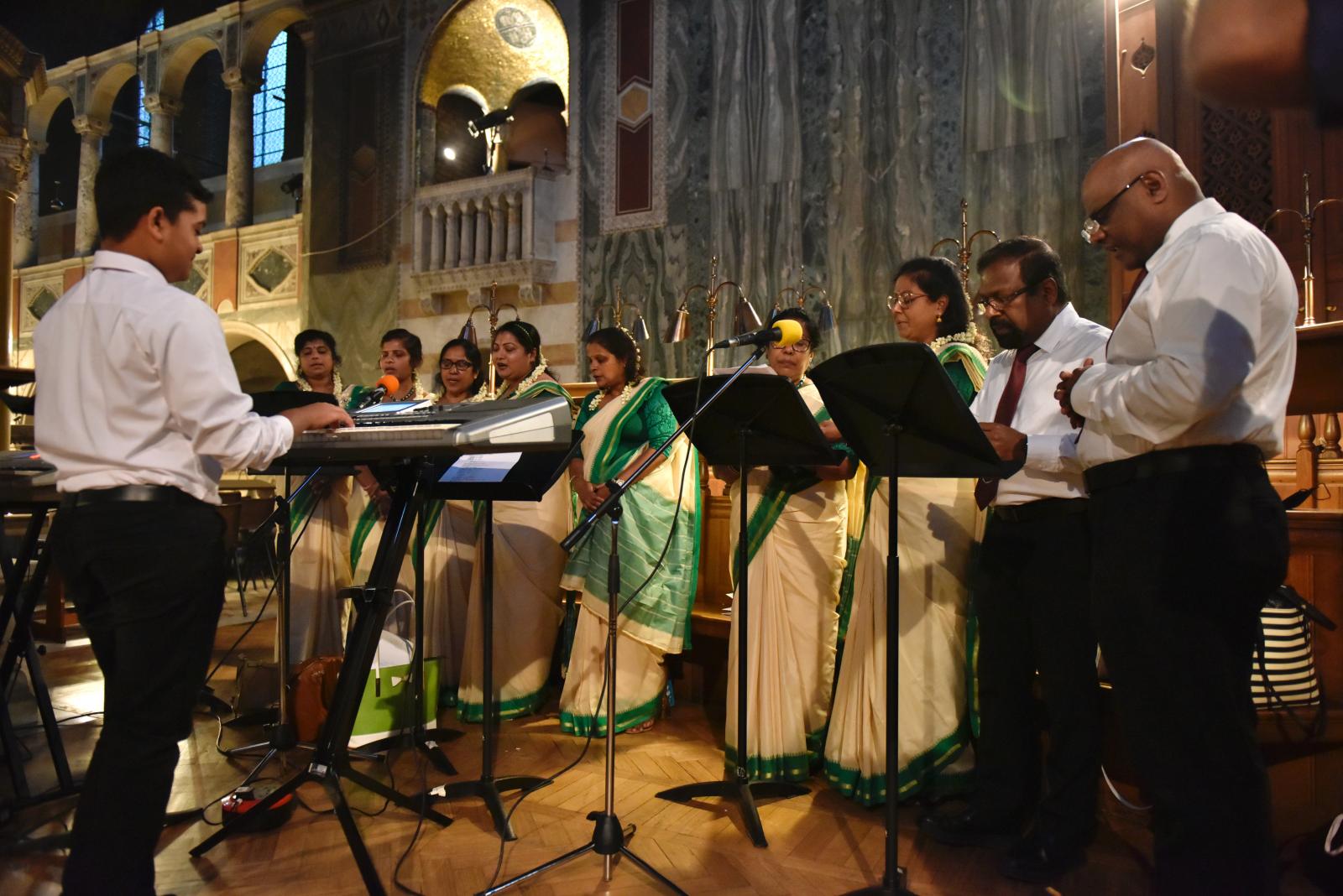On 26th September, the World Day of Migrants and Refugees, Bishop Paul McAleenan celebrated the annual International Mass at Westminster Cathedral. Bishop Paul was joined at the celebration by representatives from the ethnic chaplaincies and international communities of the Diocese of Westminster.
The members of the congregation took an active role in the liturgy. The first reading was read by a member of the Congolese community and the second reading by a member of the German community. The bidding prayers were led by representatives from the Chinese, Croatian, Lithuanian, Hungarian and Zambian communities in London. Prayers were given for the ethnic chaplains and their communities in the Diocese of Westminster, for those in all countries working to overcome the pandemic, for those without faith or hope, and for the sick and suffering. The offertory procession was presented by the Nigerian community. The Communion music was sung my members of the Sri Lankan (Tamil) community.
In his homily, Bishop Paul spoke about the Gospel story and the theme of belonging:
‘John said to Jesus, “Master we saw a man who is not one of us”’, the opening words of the Gospel today. Words which reveal that John, even though he is the Beloved Disciple, had still some progress to make in understanding the mind of Jesus for whom there was no them and us.
‘We pray that the Holy Spirit of God will continue to deepen our sense of belonging to each other, that we will not be tempted to say ‘he/she is not one of us’. Our eyes and ears will see and hear how God has enriched each nation; may our hearts also be touched and moved, taken beyond sight and sound to accept each member of the family of God.’
Bishop Paul identified in the Gospel a welcoming attitude towards migrants and refugees:
‘Today, as well our own local celebration, is the World Day of Migrants and Refugees, the 107th in fact. The movement and displacement of people is not something new. We can think of that cup of cold water of which Jesus speaks about in the Gospel, how many migrants and refugees would welcome one today. The cup of cold water represents a welcoming attitude, compassion and concern for those who have nothing but a desire to seek a better life.’
Bishop Paul reminded the congregation of the teachings of Pope Francis:
‘In his writings, Pope Francis mentions the principle “the whole is greater than the parts”. Then he continues by explaining that it is the sum of the whole which is greater than the parts. Each part, each community, each people is unique and important in itself but it is when all the parts are brought together and converge that the true beauty of each part is revealed. Keeping their own identity, they manifest the richness and goodness of the whole. So it is with the One Church, with its vast variety of culture and gifts.’
Finally, Bishop Paul highlighted the contribution that migrant and refugee communities make in their new homes:
‘Those who leave their homeland and settle elsewhere do not arrive empty-handed, they bring their gifts and contribute to their new society. It is worth reading the letter which the prophet Jeremiah wrote to the Hebrews who were exiled in Babylon. He wrote to them saying, settle down, build houses, plant gardens, get married, have children, pray for the prosperity of the country, for on its welfare depends your own.
‘We know that that is precisely what so many migrant communities have done, including in this country, contributing vastly to its progress and development. We welcome them.
‘Here, at this Mass, we see the contribution of so many communities to this diocese. We pray that we will strive to live and work together, supporting each other, giving witness to unity and displaying the wonderful talents God has given to his people. Collectively, may all us of in the words of Pope Francis have, “a heart open to the world”. That is, be willing to make room for others, including migrants and refugees who hope to find a home among us.’
The full text of Bishop Paul's homily is available here.
Photos from the celebration are available here.




